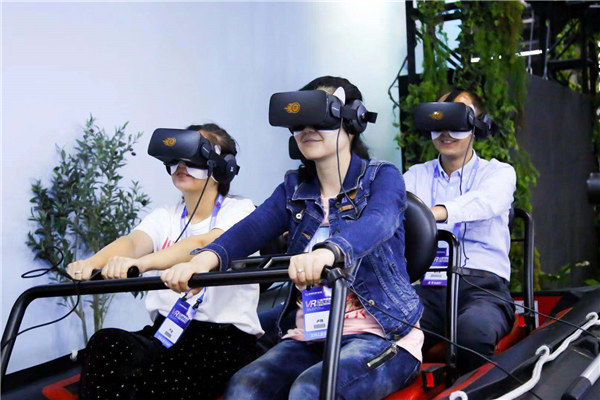The future of VR is more than a game to developers
By Chen Nan | China Daily | Updated: 2019-11-02 10:05

"We will take the lead in VR technology innovations. For example, the technology has already been applied successfully to the livestreaming of this year's National Day parade. The popularity of the technology among younger generations of users guarantees a large potential market," said Guo Ping, rotating chairman of Huawei.
In December 2016, a virtual reality theme park opened to the public in the city of Nanchang. Covering about 13,000 square meters with 120 sets of advanced VR equipment, the park attracts thousands of visitors every day, according to Wang Xiaoqing, its deputy general manager.
According to Michael Mathews, chief information officer and associate vice-president of technology and innovation of Oral Roberts University, based in Tulsa, Oklahoma, the latest virtual reality technology has changed the way educators teach and how students experience the learning process.
In 2016, the university opened a new Global Learning Center, which has classrooms equipped with infrared 360-degree cameras on the wall that swivel to follow and record professors as they teach. Students don't have to physically attend classrooms on campus to experience virtual reality. Through an app on their smartphone, they can see images in 3D and manipulate them.
























